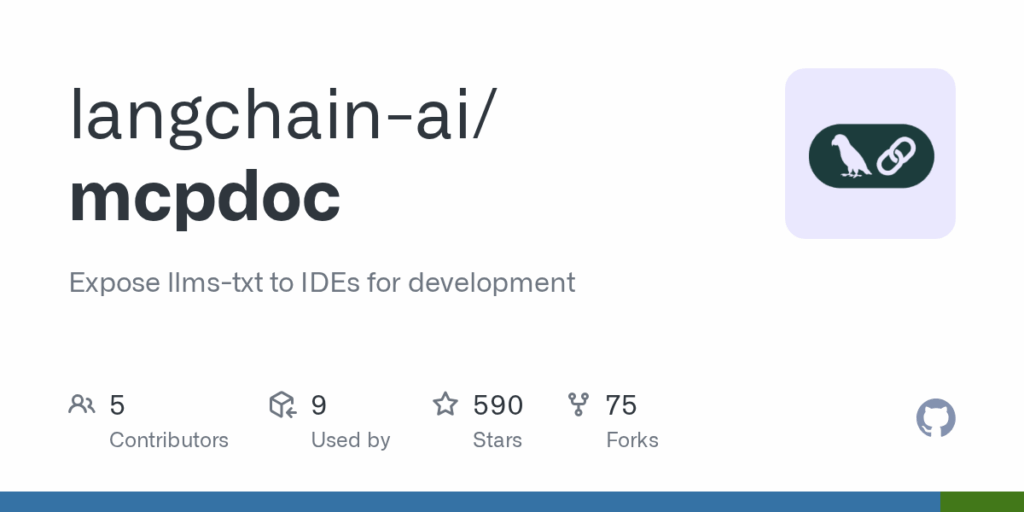mcpdoc
Basic Information
This repository provides an open source MCP (Model Context Protocol) server that exposes llms.txt documentation sources to MCP-capable host applications and IDEs. It is designed to let developers supply a user-defined list of llms.txt files and to offer simple tools such as list_doc_sources and fetch_docs so host apps can request documentation URLs and read their contents. The server is intended to increase transparency and auditability of tool calls and the context returned to an LLM-driven app. The project includes a command-line interface, sample YAML/JSON configs, a programmatic create_server API, and integration examples for Cursor, Windsurf, Claude Desktop, and Claude Code. It runs via the uv/uvx runtime and supports transports like stdio and SSE. Security controls require explicit allowed domains for remote and local llms.txt usage to prevent unauthorized network access.








